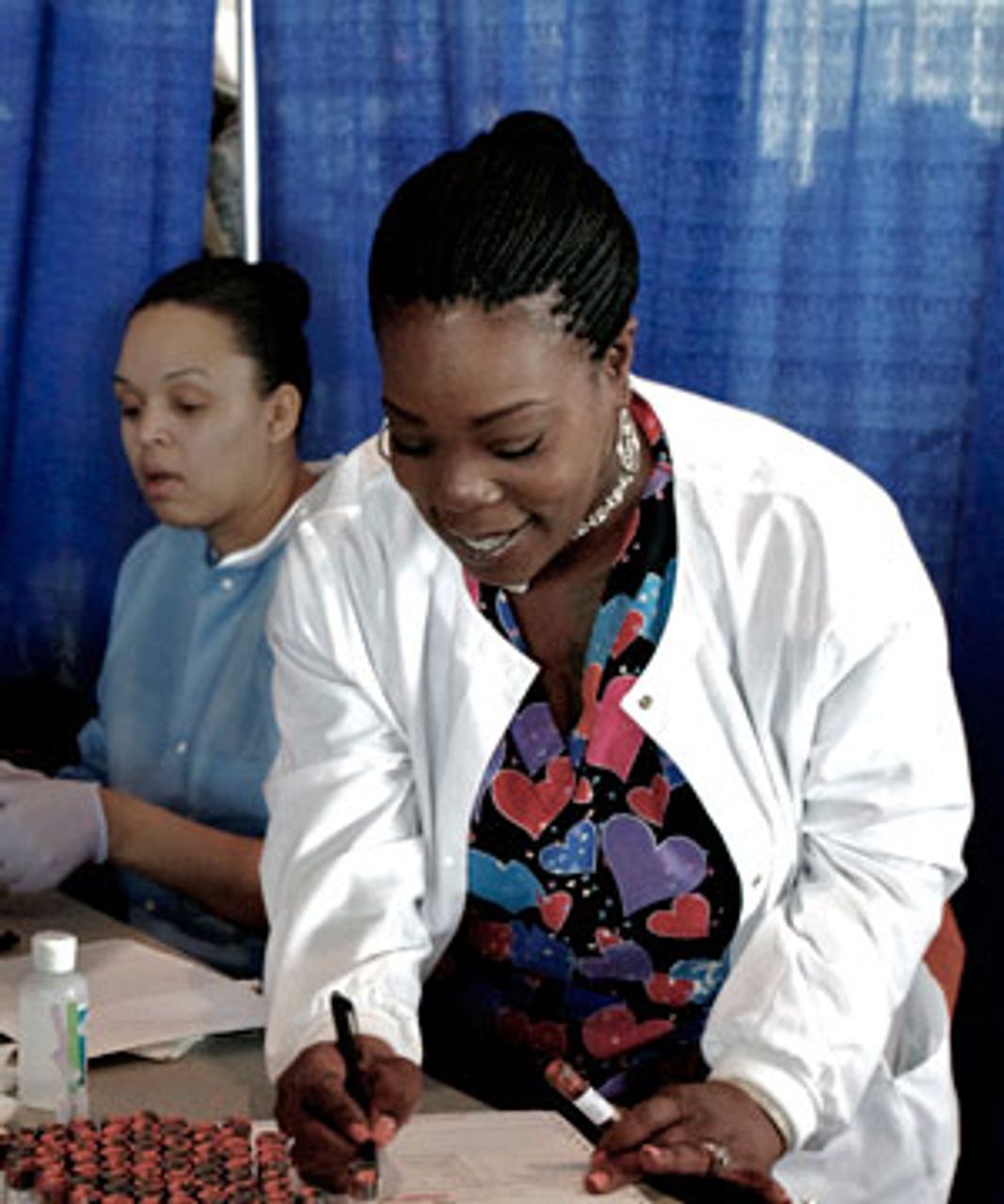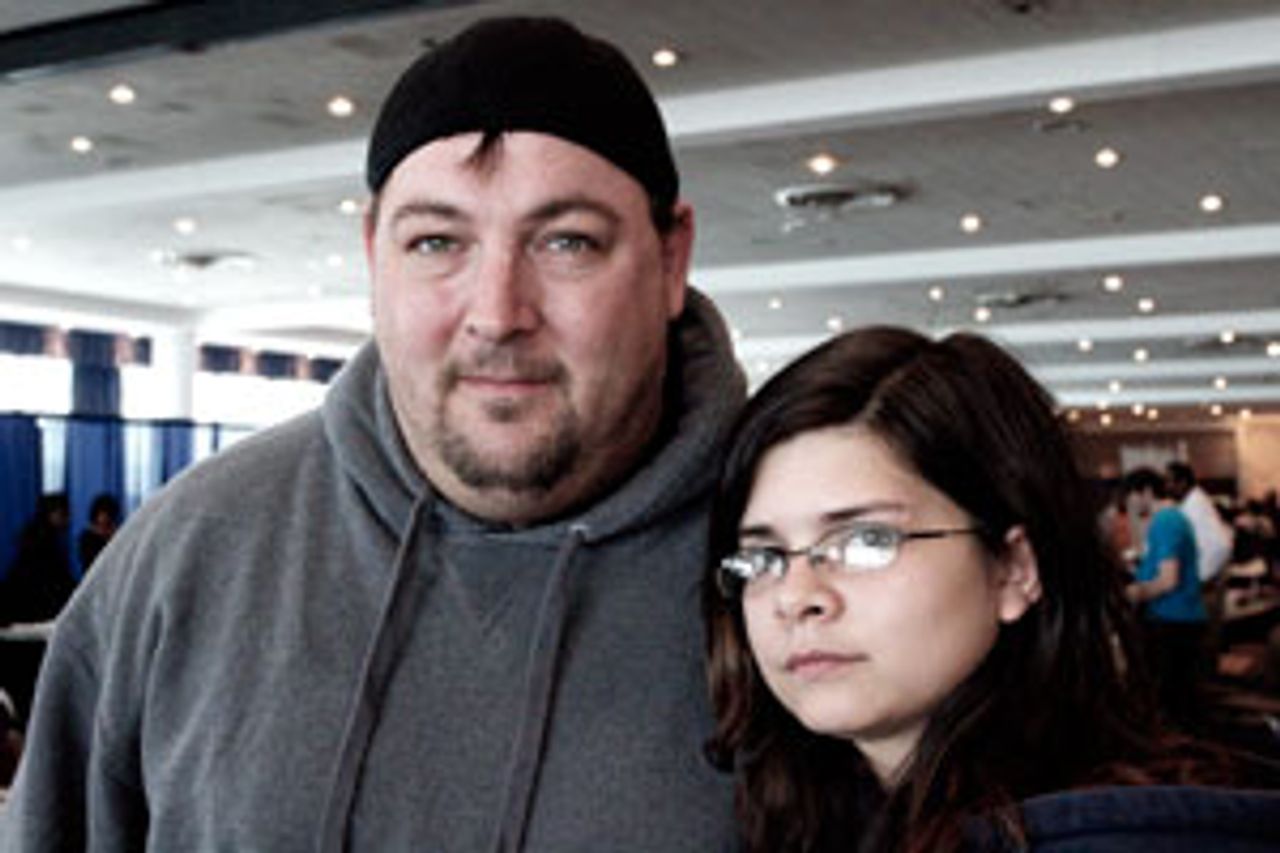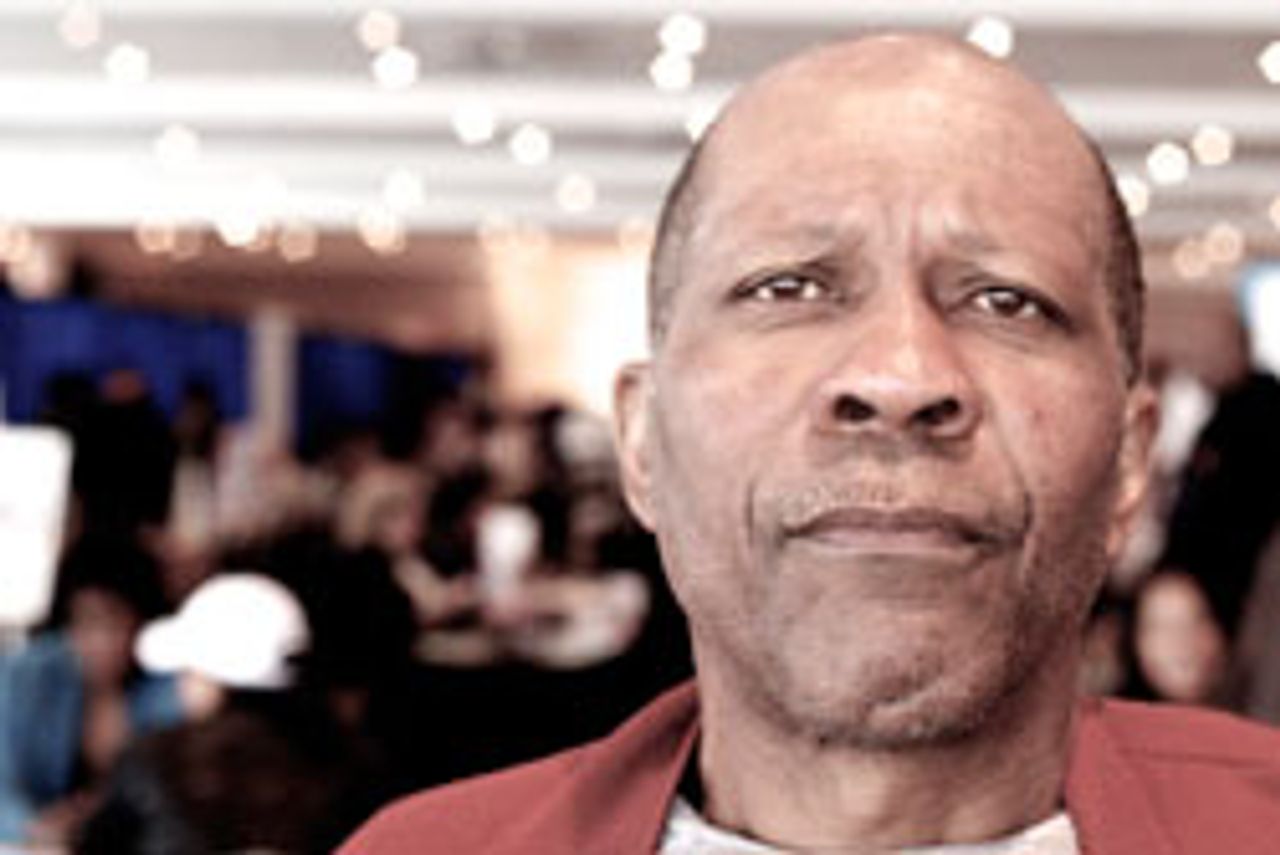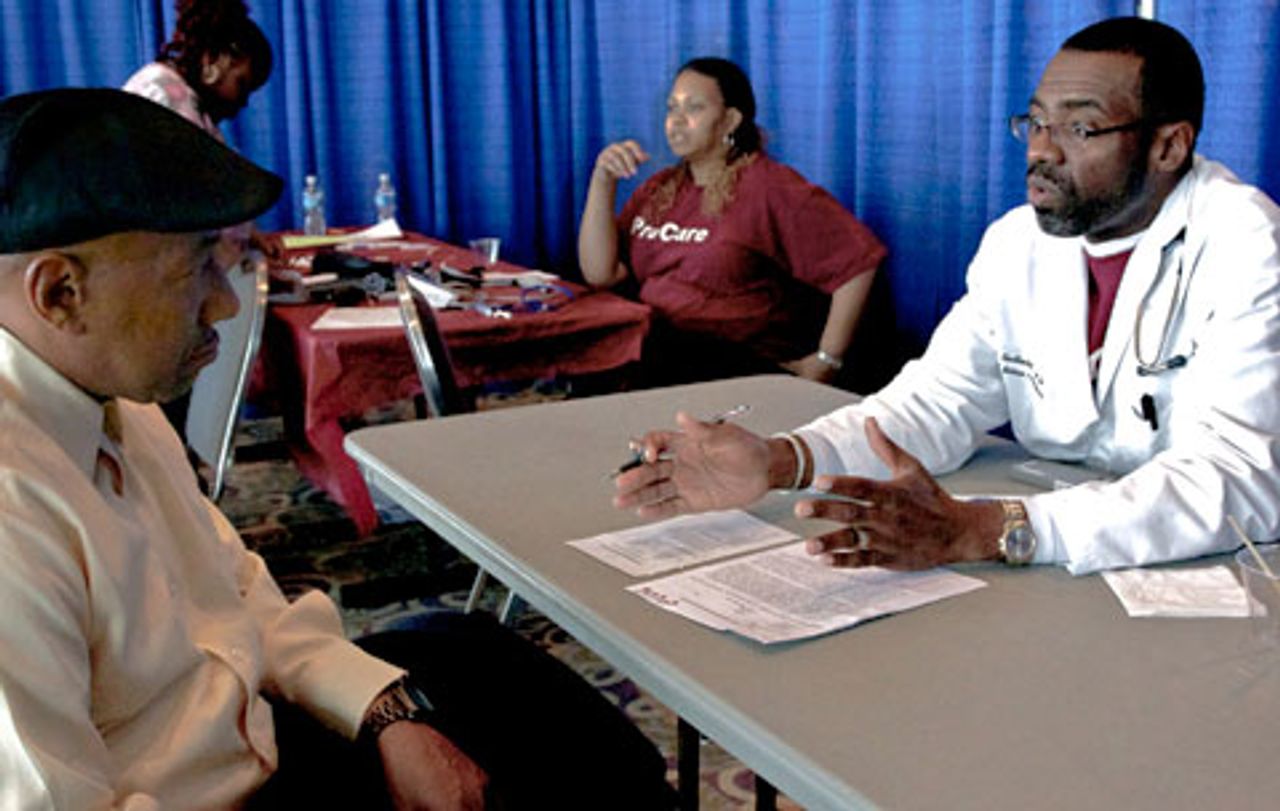Thousands of uninsured people attended a health care “expo” in Detroit’s Cobo Hall convention center Wednesday to receive free health diagnostics and advice.
Participants included laid-off workers in their 50s and 60s and young people making minimum wage at fast food jobs. Many hoped to receive treatment, but only were able to receive screenings for conditions they already knew they had.
 Angella Batiste, medical technician, fills out forms for
Angella Batiste, medical technician, fills out forms forblood samples
Some 300 technicians, nurses, doctors and staff volunteered their time and efforts to administer blood sugar, cholesterol, hypertension, and HIV testing, as well as help participants apply for the modicum of health care aid available to them.
“There are 400,000 uninsured people in Wayne County, out of a total population of 1.8 million,” said Edith Killins, the director the county’s department of Health and Human Services. That means that over one in five people in the county are uninsured, compared to the national average of one in seven.
“The manufacturing jobs are gone, and the work that is left does not offer health care benefits,” Killins told the World Socialist Web Site. “At the same time, the cost of insurance keeps going up.”
Doctors and organizers said that the most prominent diseases in the city, including diabetes, hypertension, and obesity, stemmed from chronic nutritional problems. “Thirty-three percent of people in Wayne County are obese,” Killins said. “A lot of the people in Detroit live in ‘food deserts,’ where they simply don’t have access to grocery stores that sell fresh foods.”
Some of the people who come to the clinics had to be hospitalized immediately, organizers said. “Last year, a man who came here had to be hospitalized because his glucose levels were dangerous. He’s on dialysis now, but if he hadn’t come to this clinic, he might not have made it,” Killins said.
Killins added that the lack of health insurance led to people getting the majority of their care in emergency room visits. “When people don’t have health insurance, they let health problems develop until they can’t stand them any more. That’s when they go to the emergency room, which is the most expensive type of care available.”
Lloyd Lett, a home repairman who had been out of work for six months, said his unemployment checks were too low for him to afford medical treatment. He was previously living in Indianapolis, but moved back to Detroit to live with relatives. “I’m lucky,” he said. “At least I have family to help me out so I can make ends meet.”
 Wayne Bierschbach and Bianca Weinclaus
Wayne Bierschbach and Bianca WeinclausWayne Bierschbach lost his insurance together with his job at the parts department of a truck dealership earlier this year. “My job situation has been really unstable,” he said. In 2009, before getting his last job, he was out of work for a year and a half.
“I have emphysema, which is a type of lung disease. I can’t get medicine. I can’t see my doctors. I have to borrow medicine from friends just to stay alive.”
“I thought that this event would be something other than what it is,” he said. “I thought I’d actually be able to get some care; I know I’m sick; so what? I can’t afford care.”
Bianca Weinclaus, Wayne’s girlfriend, said she will only have medical coverage for another week, before her Medicaid expires when she turns 21. Her job as a waitress does not provide her with medical benefits, and she can’t afford insurance.
Shawn Smith was laid off from his job as a school custodian after 25 years, when the school outsourced the custodial department to another company. “I’ve been out of a job for a year, and I’m looking for anything that’s available.” Smith has asthma, but cannot afford medication.
 Tyrone Simon
Tyrone SimonTyrone Simon, 60, said he was working part-time at a job with no benefits after being laid off from a meatpacking plant. “I’m diabetic,” he said. “I don’t have Medicare. I’m sick, and I can’t see a doctor.”
Dr. Henri Godbold, a general practitioner at a clinic for Medicare, Medicaid and HMO patients, was one of the clinicians on hand to consult with patients.
 Dr. Henri Godbold speaks to a patient
Dr. Henri Godbold speaks to a patient“We need a national health care system that covers everyone. But the insurance companies and the drug companies pull the strings. Of course, all the politicians are bought and paid for. They take the company’s bribes and do what they’re told; that’s why we don’t have a national health care system.”
Dr. Godbold said he was concerned about the cost-cutting plans being discussed in Washington, which would cut at least $4 trillion from the federal budget over the next ten years. “I think that, given the unemployment crisis, this is going to be devastating.”
Godbold said he thinks cost-cutting measures will affect areas with the highest unemployment the worst. “Why don’t they just create a work program to provide folks with jobs?” he asked.
He added that uninsured people wait too long before getting medical treatment. “I saw a guy this morning whose blood pressure was 220/130. He could walk and talk, but he could have a heart attack at any minute. But of course he can’t get care. What’s somebody supposed to do in that situation?”
“Why are we doing all the wrong things in America? Our priorities should be simple: education first, health care second, everything else after that. But they just sent every teacher in Detroit a layoff notice in July.”
“You need to teach people. They have to be educated in order to understand more about their health, but instead education is being destroyed. And of course the first thing that got cut from the curriculum in Detroit was physical education. Then they went after music and culture.”
“I have Medicare patients who have diseases that I simply can’t treat. Earlier this month, I saw a patient with chronic foot pain and a chronic skin disorder. He needed to see a dermatologist and a podiatrist. But with his level of insurance, it’s just not provided. So he ended up trying to treat his skin disease with a razor blade.”
“This country was created from the labor of the working class. But what’s become of it? As a doctor, I just feel like I’m babysitting a problem I can’t solve.”
